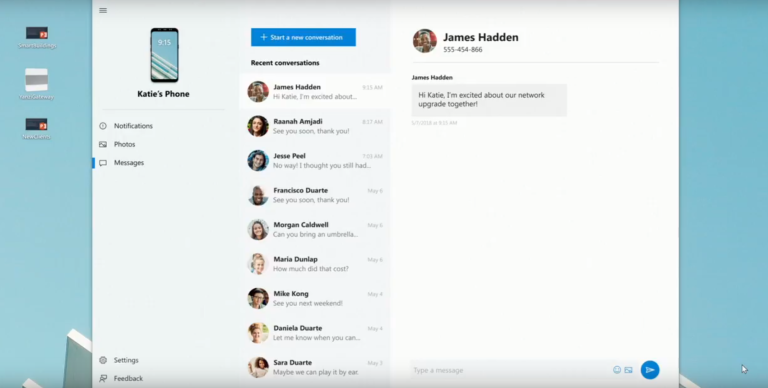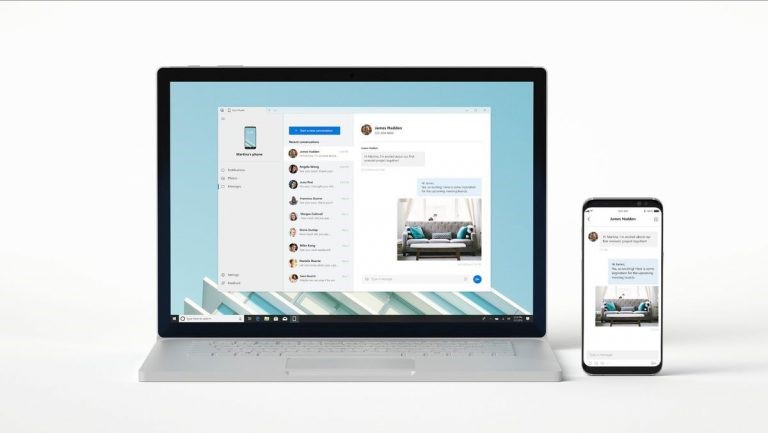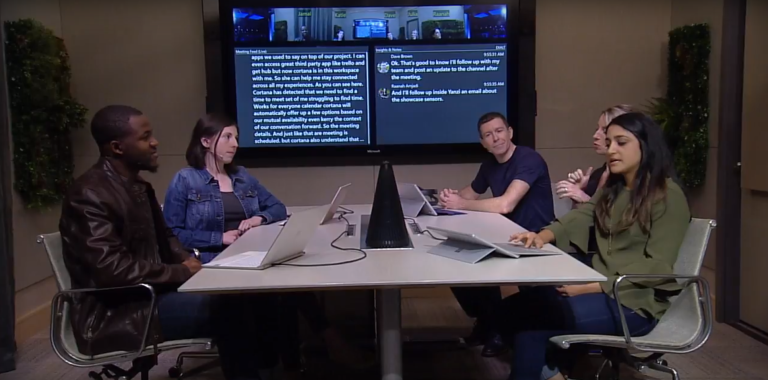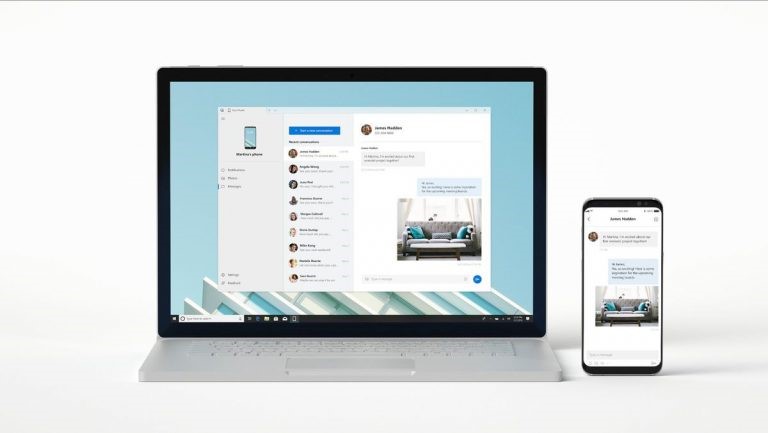The Six Biggest Announcements From Microsoft’s Build 2018 Event
[caption id="attachment_11336" align="aligncenter" width="768"] Microsoft CEO Satya Nadella[/caption]
Microsoft CEO Satya Nadella[/caption]
Microsoft CEO Satya Nadella- just wrapped up the keynote at the company’s big developer conference- Microsoft BUILD. This year, the keynote was a wild ride through the future of what the software giant thinks the world will look like, but in between the philosophy quotes and visions of dystopias where you have Skype embedded in your car dashboard, Microsoft actually did reveal a few new projects and products.
This year is all about software, AI, distributed computing, and the “multi-device” experience. In case it wasn’t clear before, Microsoft wants to make it clear that it doesn’t care if you’re using a Windows PC, a Mac, an Android phone, or anything else that can access the internet. It just wants you to be using its platform and its software to do so, and that’s the core of everything the company announced today: the new Windows features, improvements for voice assistants and helpful new cloud services.
Much of it won’t be widely available until later this year, but here’s the most exciting stuff that Microsoft had to share.
YOUR PHONE SYNCS WITH WINDOWS

Microsoft previewed a new app called ‘Your Phone’ that can sync Android phones and iPhones with Windows 10. You’ll be able to use the app to send text messages, access your photos, and view mobile notifications from your computer. That’s a huge convenience that ought to save you from pulling out your phone every few minutes. The feature goes into beta this week and is expected to launch publicly this fall.
CORTANA AND ALEXA WILL WORK TOGETHER.

Sometime in the near future, you’ll be able to speak with Cortana through an Amazon Echo or reach Alexa through your Windows 10 PC. This partnership between Microsoft and Amazon, making each of their smart assistants available on one another’s platform, was first announced last year. But it wasn’t until today that we saw it in action. On stage, representatives from Microsoft and Amazon demonstrated the integration on an Echo and a Surface. During the course of the integration: you have to say, “Alexa, open Cortana” or “Cortana, open Alexa” before you can speak with the other assistant.
Microsoft has a website up where you’ll be able to sign up to hear about progress on the Cortana / Alexa integration, and it’s presumably where you’ll want to go to hear about any wider beta.
KINECT IS NOW IN THE CLOUD
Microsoft keeps Kinect alive, but only in a very different way than we know it. Instead of being an accessory for Xbox, Microsoft is turning Kinect into a cloud service. It seems that developers can send information from their own cameras and depth sensors to Kinect in the cloud, have Microsoft process that information and then send it back to the device. The reason behind this feature is to allow hardware manufacturers to create all kinds of cameras similar to Kinect, which could be used in a much wider variety of ways than the failed Xbox accessory.
MICROSOFT CAN HELP RUN YOUR MEETINGS.

Office productivity was at the core of everything Microsoft was showing off today, and its meeting demo was perhaps the most complete example. During the presentation, the conference room was rigged with a Surface Hub smart screen at the front, smart speaker in the centre of the table, and internet-connected cameras monitoring the room. By combining the data from the microphones and the cameras, Microsoft’s AI can build up a real-time record of the meeting. A transcript of the conversation, divided by individual user, shows up just seconds after the words are spoken on the side of the screen. The AI recognizes actionable statements (“I’ll follow up with him) and puts them in a ledger on the right, and can facilitate conversations in an ongoing way. Microsoft also says that the transcript can be translated into different languages in real time.
TIMELINE FOR iOS AND ANDROID

Microsoft just introduced the Timeline with its latest update to Windows, and now the tool is about to get even more useful. Windows 10’s Timeline keeps track of all the apps you’re using and what you’re doing in them. You can open up the timeline to view your history and jump right back to where you were.
What’s powerful about the Timeline is that it can sync across Windows 10 devices. And now, Microsoft is bringing the Timeline to iOS and Android, too. So if you use the same apps on your phone and desktop, you’ll be able to pick something up on mobile that you started on a desktop. On Android, Timeline will be included as part of the Microsoft Launcher. On iOS, it’ll be a tab within the Edge browser.
MORE POWERFUL CHIPS
The next version of Windows will have a big change in how windows work: instead of each window representing a single application, you can create a "set", which is a single window that contains tabs of different applications. So, for example, you could have a window or "set" that contains a tab for Microsoft Word, along with tabs of some different websites in Edge. The feature seems a smart new option that should help people to better organise their work. Microsoft is also looking to change how Alt-Tab works, so you can use the keyboard shortcut to switch between individual tabs, as well as windows.
Okay, let’s outline Microsoft"s new features. Here"s a quick glimpse:
- Your phone syncs with windows.
- Cortana and Alexa gets to work together.
- Kinect now available in clouds
- Your meetings can now be run by Microsoft.
- New improved timeline for iOS and Android.
Comments
Post a Comment